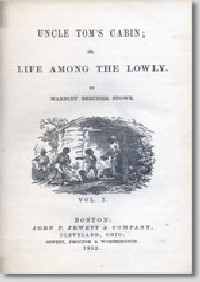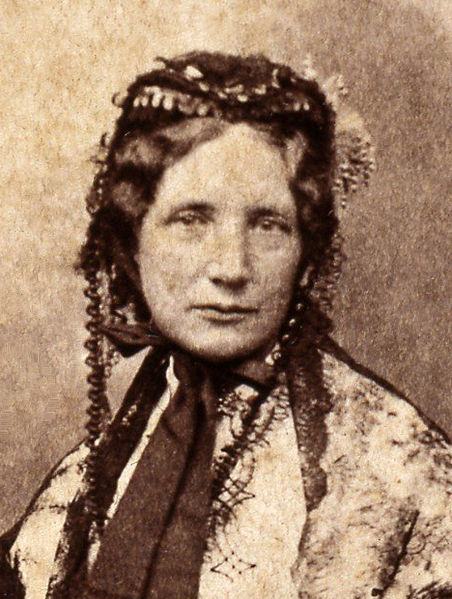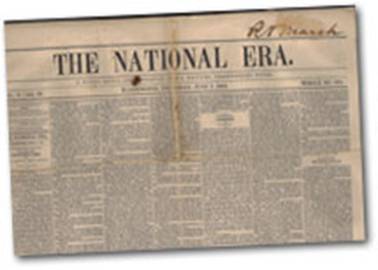History in the 19th Century
FUGITIVE SLAVE ACT
At the height of slavery’s hold on the southern economy in America, legislation was passed that sent a shock wave through the North where the Underground Railroad helped escaping slaves. The Fugitive Slave Act endangered every Negro in America, no matter where they lived, no matter how long they had been free. It made legal the accusation and capture of supposed or suspected fugitives from slavery – and it required all citizens to cooperate. Furthermore, officials were paid for every Negro kidnapped and sent back to slavery in the southern states.
- http://americanhistory.about.com/od/beforethewar/a/fugitiveslave.htm
- http://www.drbronsontours.com/PGslaveryThe1850FugitiveSlaveLawSynopsis.html
UNCLE TOM’S CABIN by Harriet Beecher Stowe
 The Fugitive Slave Act incensed a politically astute woman named Harriet Beecher Stowe. A gifted writer, she collected stories, newspaper articles and other information to spin a story like none before it. Her intention was to portray slavery so graphically that every citizen in America would turn against it and work to end the institution. She succeeded beyond her wildest imaginations and was often credited with helping start the Civil War, which settled the slavery issue.
The Fugitive Slave Act incensed a politically astute woman named Harriet Beecher Stowe. A gifted writer, she collected stories, newspaper articles and other information to spin a story like none before it. Her intention was to portray slavery so graphically that every citizen in America would turn against it and work to end the institution. She succeeded beyond her wildest imaginations and was often credited with helping start the Civil War, which settled the slavery issue.

Harriet Beecher Stowe (1811-1896)
- http://www.gradesaver.com/uncle-toms-cabin/study-guide/short-summary/
- http://www.harrietbeecherstowecenter.org/
Before it was published as a novel, Uncle Tom’s Cabin was serialized in The National Era, an antislavery magazine. First appearing on June 5, 1851, each successive installment had readers clamoring for more. This popularity helped promote the two-volume novel which became a best seller in America and abroad after translation into over sixty languages. Many sources credit the character-driven story as the most influential novel in American history. Its impact was and is felt worldwide, as well, for motivating emancipation efforts.
INDIAN REMOVALS
Native Americans, called Indians in the 19th Century, had inhabited the land in America long before explorers, settlers or immigrants landed with new intensions and goals. Valuable and in demand, land was the subject of disputes between Indians and white settlers and led to many problems. Particularly in Georgia, the legislature sought to gain title to ancestral Indian lands. Problems also grew in Virginia, Tennessee and Alabama that led the Cherokee nation to adopt a written constitution declaring land jurisdiction. President Andrew Jackson, who before his political career had served in the military to clear Indians out of the West, devised a solution to move the Cherokee tribe and many others far away to newly designated territories. He encouraged the passage of the Indian Removal Act by Congress.
A case involving the sovereignty of the Cherokee Nation went to the US Supreme Court, which voted in favor of the Cherokees. But President Jackson and the State of Georgia refused to enforce the decision. The case was called Worcester v. Georgia and made a missionary named Samuel Austin Worcester a famous man.
